>>
>>
Step-by-step policy synchronization for tourism.
Tourism is one of the key economic sectors identified by Yen Bai province, particularly suitable for mountainous areas and ethnic minority regions, with the goal and expectation of effectively and sustainably reducing poverty. Therefore, for many years, Yen Bai has issued numerous policies to support and promote tourism development. On April 19, 2021, the Provincial People's Council issued...
Resolution No. 10 stipulates a number of policies to support tourism development in the province during the 2021-2025 period. After more than three years of implementation, the entire province has approved support for 270 applications from organizations and individuals requesting benefits from these policies, with a total budget of over 5.73 billion VND, including: establishing 231 new groups, maintaining performing arts groups in the province; supporting the establishment of classes for transmitting intangible cultural heritage; supporting the maintenance of traditional craft villages for tourism development; supporting waste collection teams and training courses for tourism personnel…
The policies have contributed to supporting collectives, individuals, and villages in developing tourism activities, improving the quality of tourism services, especially community tourism, linking the preservation and promotion of unique cultural values of ethnic groups with tourism development. However, only 6 out of 11 policies have been implemented due to various reasons, including the difficulty in accessing them for the target groups. Therefore, for the period 2024-2030, the Provincial People's Council will continue to issue Resolution No. 81, effective from October 10, 2024.
The resolution includes 12 policies, many of which are new, such as: awarding 1 billion VND to villages recognized by the province as meeting the criteria for community tourism villages; supporting the preparation of project dossiers for the construction of community tourism villages for localities with villages approved by the Chairman of the Provincial People's Committee for implementation, with a cost not exceeding 400 million VND per dossier; supporting the cost of preparing dossiers for the recognition of community tourism villages; providing loans for tourism development investment from the Yen Bai Provincial Branch of the Social Policy Bank, with a maximum loan of 500 million VND per household…
In addition, there are some old policies from Resolution No. 10, but with increased financial support and adjustments to eligibility conditions to make them more accessible to the people.
From Resolution No. 10 to Resolution No. 81, the tourism policy system has been quite comprehensive and synchronized, aiming to develop tourism from tourism infrastructure and human resource training to investment promotion and advertising; especially supporting the exploitation of the strengths of natural landscapes combined with the cultural identity of ethnic groups to create unique tourism products.
Tourism - a driving force for poverty reduction.
Alongside perfecting the policy system, the province has also focused on building the Yen Bai tourism brand, aiming to complete a green tourism ecosystem along the value chain. The province supports and encourages organizations and individuals to invest in and develop the province's strong tourism products in key tourism areas such as: community-based tourism products associated with learning about indigenous ethnic cultures; developing eco-tourism and resort products; developing spiritual tourism products; developing adventure tourism products; organizing many tourism promotion and marketing activities… At the same time, it has opened more attractive tours, contributing significantly to creating strong links to ensure Yen Bai remains an attractive destination for domestic and international tourists.
It must be affirmed that the development of tourism, attracting an increasing number of tourists to the area, has led to improved living conditions for ethnic minority communities, providing them with more jobs and income. This is most evident in the two impoverished districts of Mu Cang Chai and Tram Tau, where tourism is becoming a key economic sector, significantly contributing to a reduction in poverty rates.
In 2024 alone, Tram Tau reduced the number of poor households by 418 and near-poor households by 72; Mu Cang Chai reduced the number of poor households by 1,298 and near-poor households by 345. With over 90% of the population being ethnic Mong people, who still have limited education and awareness, and tend to be introverted and withdrawn from society, tourism is gradually contributing to their transformation. Taking advantage of support policies, they are boldly borrowing capital to renovate and repair their houses to create homestays and develop community tourism.
They learned English to communicate with foreign tourists and actively participated in tourism training courses organized by the local authorities. They encouraged each other to raise cattle, pigs, and chickens in enclosed pens, keep their houses clean, and plant flowers from the gate to each house to attract tourists. The grounds of their houses were planted with many flowers and trees, and had beautiful miniature landscapes to serve as photo opportunities for tourists.
Local cuisine is given special attention, meticulously prepared, delicious, and visually appealing. Experiential tours are organized regularly, effectively serving the needs for cultural exploration, entertainment, and arts... As a result, in 2024 alone, these two impoverished districts welcomed over 520,000 tourists, generating revenue exceeding 500 billion VND.
Tourism has truly generated income and direct employment for accommodation establishments and many local workers involved in the tourism ecosystem, such as businesses, retailers, motorbike taxi drivers, porters, local guides, and even farmers producing and processing local agricultural products. Many Hmong people here have shared that since the influx of tourists, agricultural products, from vegetables and wild fruits to chickens, pigs, and bottles of honey, have been selling more easily than ever before.
The traditional brocade products of the Hmong people are selling better thanks to tourism.
The benefits that tourism brings to people in mountainous and ethnic minority areas have confirmed that tourism is becoming an effective poverty reduction tool for these regions. In 2024 alone, the number of poor ethnic minority households decreased by 6,433 compared to 2023, leaving 11,283 poor ethnic minority households, accounting for 89.7% of all poor households in the province. Therefore, tourism is expected to continue supporting ethnic minority communities in poverty reduction.
However, for tourism to truly become a sustainable poverty reduction tool, local authorities need to continue developing policies and mechanisms to attract investment in tourism infrastructure, ensuring environmental hygiene and security to attract tourists from all over the world; strengthening the image of tourism to international friends by promoting civilized behavior, organizing information and guidance, and supporting tourists at tourist destinations, especially building a movement for civilized behavior, with an open, sincere, and enthusiastic attitude towards tourists; diversifying tourism products, and increasing investment in tourism infrastructure to fully utilize existing potential.
At the same time, effective solutions are needed to restore and promote the unique cultural activities of the local people, creating a distinctive identity to serve tourists seeking experiential tourism. Only then will the people not be left out and will benefit from the advantages that the tourism industry brings.
| In 2024, Yen Bai welcomed and served over 2.1 million visitors, an increase of 3%, including an estimated 270,000 international visitors; revenue is estimated at 1,790 billion VND, reaching 119.3% of the plan, an increase of 4% compared to the same period. In the first quarter of 2025, Yen Bai is also estimated to welcome 742,335 tourists, an increase of 7.1% compared to the same period last year; international visitors will reach 83,582, an increase of 0.7% compared to the same period in 2024; revenue is estimated at over 632.2 billion VND, an increase of 16.9% compared to the same period last year. |
Hoai Anh
Source: https://baoyenbai.com.vn/12/349372/Du-lich---tro-luc-giam-ngheo.aspx






















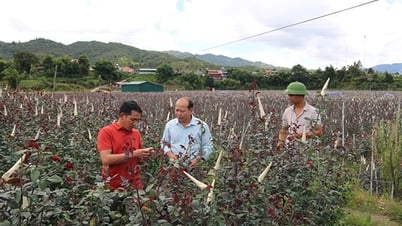


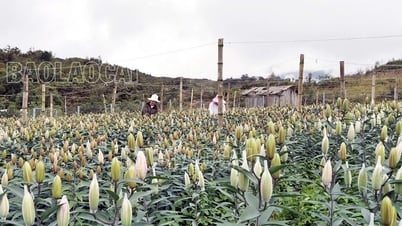
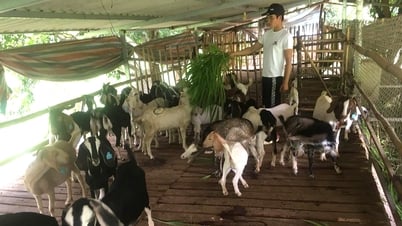
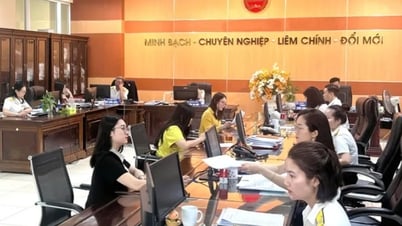










































































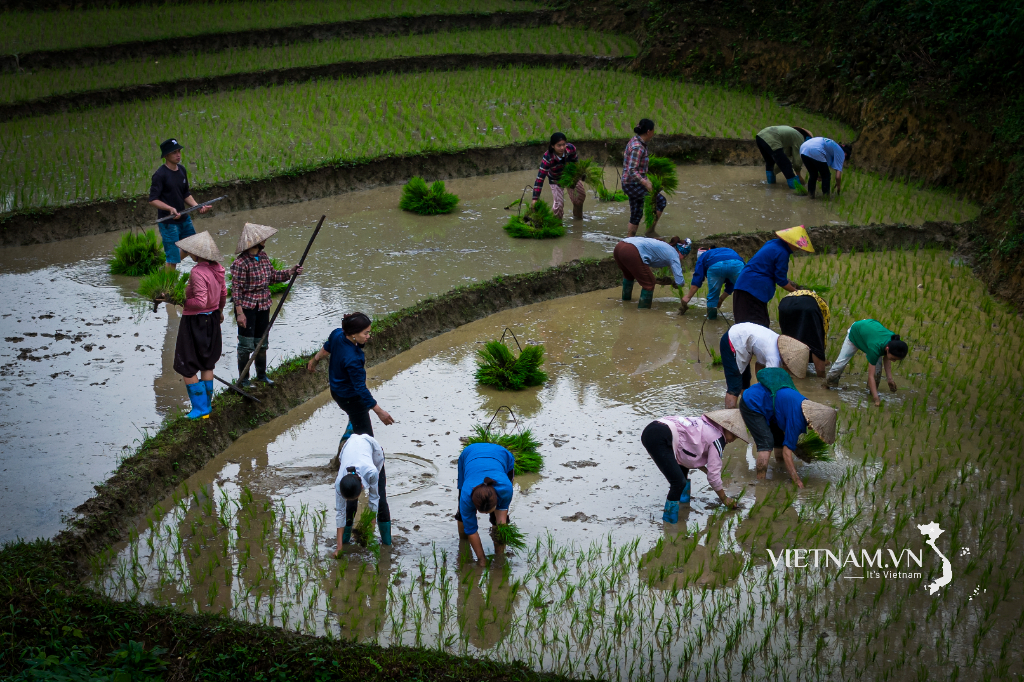



Comment (0)